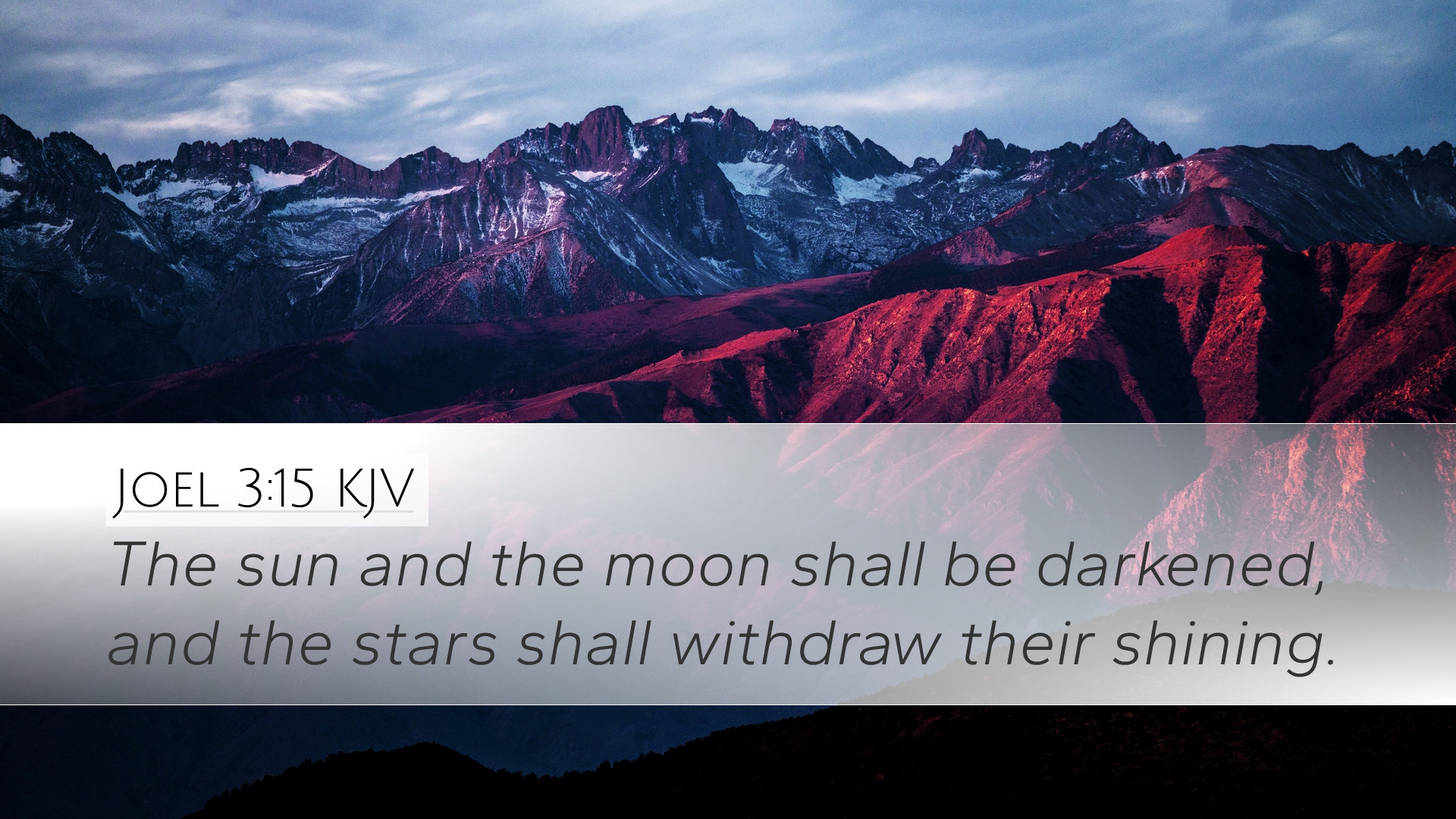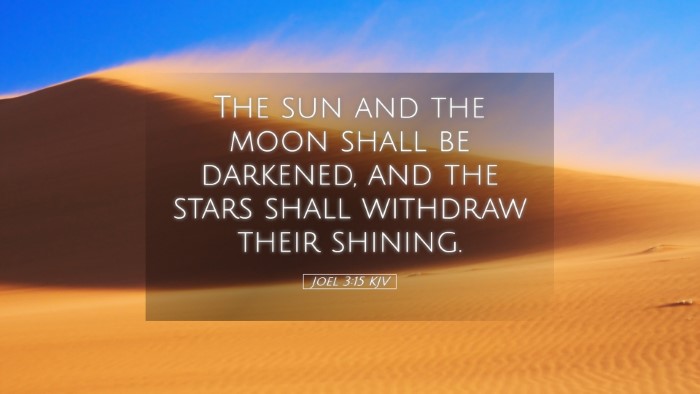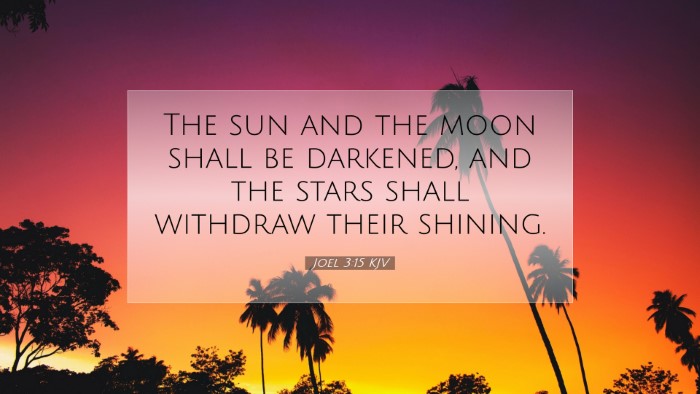Old Testament
Genesis Exodus Leviticus Numbers Deuteronomy Joshua Judges Ruth 1 Samuel 2 Samuel 1 Kings 2 Kings 1 Chronicles 2 Chronicles Ezra Nehemiah Esther Job Psalms Proverbs Ecclesiastes Song of Solomon Isaiah Jeremiah Lamentations Ezekiel Daniel Hosea Joel Amos Obadiah Jonah Micah Nahum Habakkuk Zephaniah Haggai Zechariah MalachiJoel 3:15
Joel 3:15 KJV
The sun and the moon shall be darkened, and the stars shall withdraw their shining.
Joel 3:15 Bible Commentary
Commentary on Joel 3:15
Introduction
The prophetic book of Joel addresses themes of judgment, restoration, and God's sovereignty over the nations. Joel 3:15 is notably rich in imagery, symbolizing a divine intervention in the events of history. This commentary combines insights from renowned public domain sources to provide a comprehensive analysis, meaningful for pastors, students, theologians, and Bible scholars.
Exegesis of Joel 3:15
In Joel 3:15, it is written: "The sun and the moon shall be darkened, and the stars shall withdraw their shining." This verse speaks to cosmic disturbances that align with the eschatological themes prevalent in the prophetic literature of the Old Testament.
Cosmic Imagery
Matthew Henry's Insight: Henry notes that the darkening of celestial bodies is often indicative of divine displeasure and a prelude to significant divine intervention. The imagery serves to emphasize the severity of the judgment that is to come upon the nations. The sun, moon, and stars are often seen as symbols of earthly powers and authorities. Their dimming illustrates the downfall of these authorities in contrast to God’s ultimate sovereignty.
Albert Barnes' Interpretation: Barnes affirms that such cosmic signs are frequently employed in the Scriptures to denote God’s intervention in historical events. He highlights that this passage reflects a common motif in prophetic literature, where natural phenomena signify heavenly truths. The withdrawal of light from the sun and moon symbolizes the cessation of hope and the impending doom of judgment.
Theological Implications
Adam Clarke's Analysis: Clarke elaborates on the theological implications of this passage. He underscores the connection between the created order and the sovereignty of God. When the natural order is disrupted, it serves as a reminder that God holds authority over creation and its functioning. This disruption signals not only judgment but also the potential for subsequent restoration.
Contextual Considerations
To fully appreciate the weight of Joel 3:15, one must consider the context of the entire chapter.
Judgment and Restoration
- Historical Context: Joel prophesies about the impending judgment of God on Judah due to their sins, particularly calling Israel to repentance.
- Future Fulfillment: This passage is often viewed through a dual lens: one that pertains to the immediate context of Judah and another that indicates the ultimate fulfillment in the eschatological climax at the end of times.
Apocalyptic Imagery
The apocalyptic nature of this imagery is crucial for understanding its prophetic significance. Both Henry and Barnes refer to the New Testament allusions to this verse, particularly in the writings of Jesus (Matthew 24:29) and the Apostle John in Revelation. The intertwining of these texts affirms the comprehensive cosmic judgment that befalls the world, culminating in the return of Christ.
Application for Today
For contemporary readers, this verse serves as a compelling reminder of God’s authority over all creation. The themes of darkness and light can be applied metaphorically to the moral and spiritual conditions faced in today's world.
Reflections for the Faith Community
- Call to Repentance: Just as Joel called for the nation of Israel to return to God, there is a call for modern believers to reflect on their lives and seek the light of God amidst the darkness of sin.
- Auspicious Hope: While the cosmic disruption signifies judgment, it also beckons believers to hope in the restoration that follows. God’s ultimate plan encompasses both judgment and grace.
Conclusion
Joel 3:15 stands as a powerful testament to the omnipotence of God over creation, an assurance that He intervenes in human affairs. By drawing from the insights of Matthew Henry, Albert Barnes, and Adam Clarke, we come to appreciate the theological and literary depth of this verse. It challenges believers to confront the realities of sin while offering hope in divine restoration.


